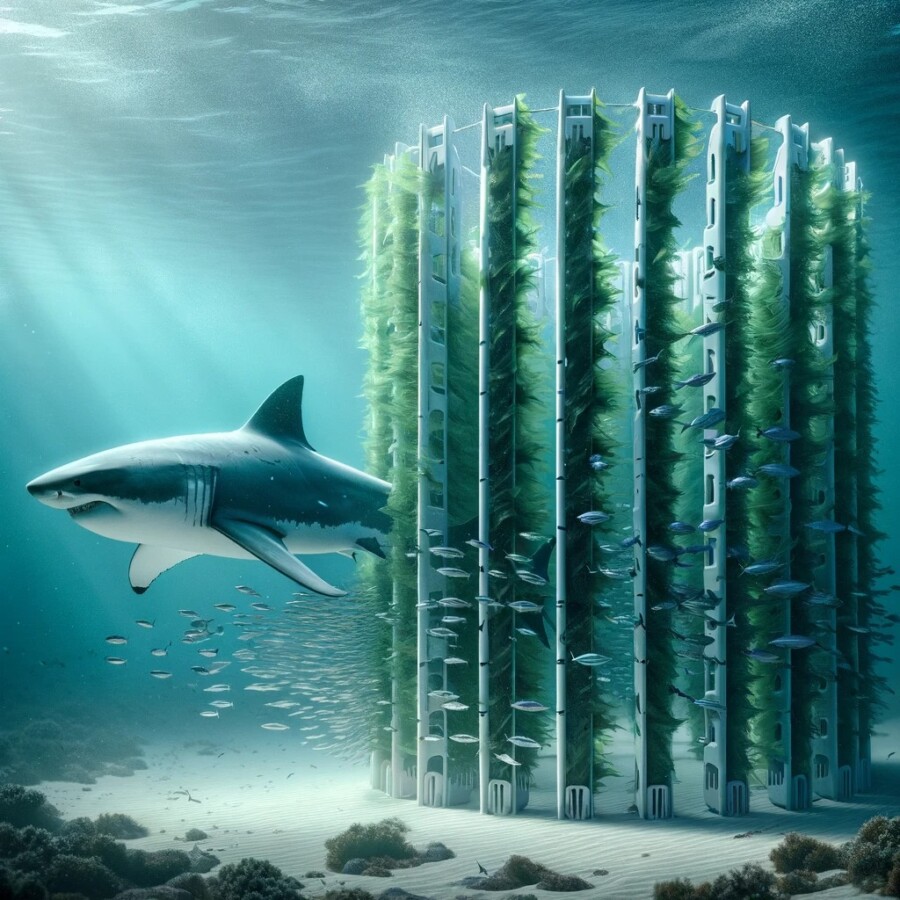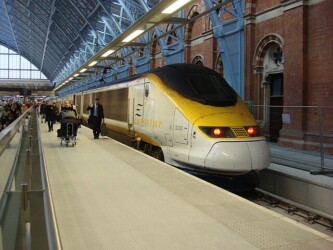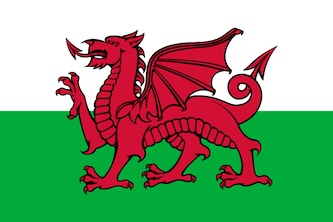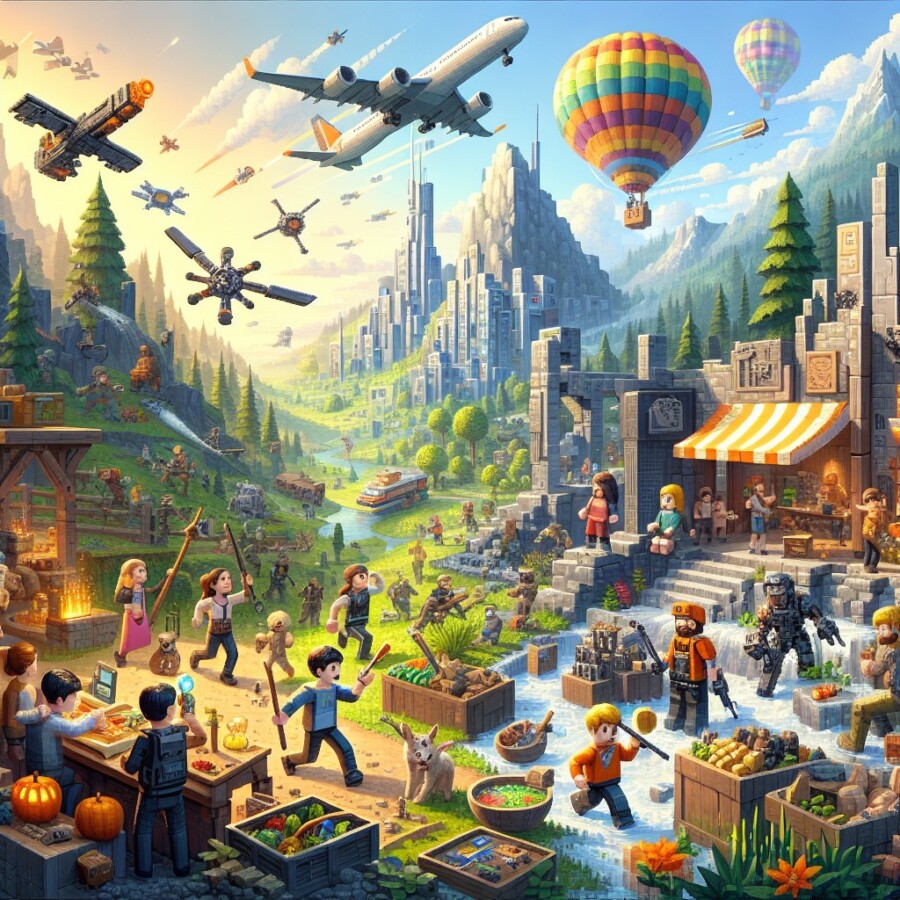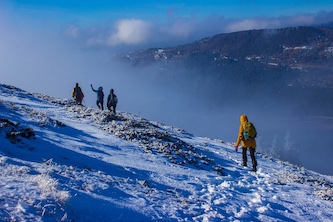Shark spotters in Cape Town, South Africa, are back in action because great white sharks have returned after being gone for four years. In the past, these sharks were responsible for deadly attacks on swimmers. Some places use nets and baited hooks to kill sharks, but this hurts other marine life. The International Union for Conservation of Nature says we should use non-lethal methods to deal with the risk from sharks. In Cape Town, the goal is to keep sharks and people apart to protect both. A team of professional shark spotters has been working in the area for over 15 years. They want to prevent bad interactions between people and sharks and make sure people can swim safely while also protecting the sharks.
Conservationists are actually happy that the great white sharks are back because their disappearance was a problem for the waters off Cape Town. The shark spotters watch five beaches from the mountains, and those higher up talk to the people on the beaches using radios. If they see a shark that could be dangerous, they tell everyone to get out of the water. They use a flag system to show the current situation, and a white flag means people should leave the sea right away. The team also puts up a net each morning off Fish Hoek beach to make a safe area for swimming. The net goes down to the bottom of the sea and across the bay, and they take it out each evening to avoid hurting sea life. This system is different from normal shark barriers because it doesn’t hurt the environment.
Shark bites are really bad events that have a big impact on communities socially, economically, and environmentally. In Plettenberg Bay, where two people died from shark attacks last year, shark spotters now watch five beaches and have seen over 70 great white sharks in a year. They started using shark spotters after Kimon “Kiki” Bisogno, a person who helped the community, was killed by a shark. Her partner, Diego Milesi, thinks that if they had put up a “beware of sharks” sign after the first attack, Kiki might not have gone swimming. He says it’s important for people to know about the risks in the water.
Besides shark spotters, they’re also trying other ways to deal with sharks that don’t hurt them. A local marine biologist is making a shark barrier that looks like an underwater forest of kelp, which sharks don’t like. The barrier has magnets that push sharks away because they’re sensitive to electric and magnetic fields. This idea is new and hard for people to accept, but it worked on a private island in the Bahamas. The marine biologist says it’s really important to keep sharks in the ecosystem because they’re top predators and help keep everything balanced. They warn against killing sharks on purpose or targeting them.
Overall, the people in Cape Town are trying to protect both sharks and people by finding ways to keep them separate. They want people to
Original news source: South Africa’s shark spotters back in action as great whites return (BBC)
🎧 Listen:
Slow
Normal
Fast
📖 Vocabulary:
| 1 | conservationists | People who work to protect nature and wildlife |
| 2 | lethal | Deadly or capable of causing death |
| 3 | interactions | Meetings or exchanges between individuals or groups |
| 4 | marine | Related to the ocean and its life forms |
| 5 | barriers | Obstacles or structures that prevent movement or access |
| 6 | economically | In a way that relates to money and finances |
| 7 | environmentally | In a way that relates to the natural world and surroundings |
| 8 | community | A group of people living in the same place or having a particular characteristic in common |
| 9 | biologist | A scientist who studies living organisms and their relationship to their environment |
| 10 | ecosystem | A community of living organisms and their physical surroundings |
| 11 | predators | Animals that hunt, kill, and eat other animals |
| 12 | magnetic | Related to the force that attracts objects to one another |
| 13 | sensitive | Easily affected by something, quick to detect or respond to slight changes |
| 14 | targeting | Singling out and focusing on one specific object or issue |
| 15 | separate | To keep things or people apart or at a distance from each other |
Group or Classroom Activities
Warm-up Activities:
– News Summary
Instructions: Divide the class into pairs. Give each pair a few minutes to read the article. Then, one student from each pair will summarize the article to their partner in their own words. After both students have shared their summaries, they can discuss any differences or similarities in their understanding of the article.
– Opinion Poll
Instructions: Divide the class into small groups. Each group will come up with a question related to the article, such as “Do you think using non-lethal methods to deal with the risk from sharks is effective?” Each student in the group will take turns asking the question to the rest of the group and recording their responses. After everyone has answered the question, the group can discuss their opinions and any differences they may have.
– Keyword Taboo
Instructions: Write down a list of keywords from the article on separate pieces of paper. Divide the class into two teams. One student from each team will come up to the front of the class. The teacher will show them a keyword, and they must describe the keyword to their team without using the word itself. Their team members must guess the keyword based on the description. The team with the most correct guesses wins.
– Vocabulary Pictionary
Instructions: Divide the class into pairs. Give each pair a list of vocabulary words from the article. One student from each pair will choose a word and draw a picture to represent it, while the other student guesses the word. They can switch roles after a few rounds. Afterward, the pairs can share their drawings and discuss the meanings of the words.
– Future Predictions
Instructions: In small groups, students will discuss and make predictions about the future of shark conservation in Cape Town. They can consider questions like “What other non-lethal methods could be used to protect both sharks and people?” or “How might the role of shark spotters evolve in the future?” Each group will then present their predictions to the class and explain their reasoning.
🤔 Comprehension Questions:
1. Why are shark spotters in Cape Town back in action?
2. How do the shark spotters communicate with people on the beaches?
3. What does a white flag mean in the flag system used by the shark spotters?
4. How is the net used by the shark spotters different from normal shark barriers?
5. Why do shark bites have a big impact on communities?
6. Why did Plettenberg Bay start using shark spotters?
7. What is the purpose of the shark barrier being developed by a local marine biologist?
8. Why do the people in Cape Town want to keep sharks in the ecosystem?
Go to answers ⇩
🎧✍️ Listen and Fill in the Gaps:
Shark spotters in Cape Town, South Africa, are back in action because (1)______ white (2)______ have returned after being gone for four years. In the past, these sharks were responsible for deadly attacks on swimmers. Some places use nets and baited hooks to kill sharks, but this hurts other marine life. The International Union for Conservation of (3)______ says we should use non-lethal (4)______ to deal with the risk from sharks. In Cape Town, the goal is to keep sharks and people apart to protect both. A team of professional shark spotters has been working in the area for over 15 years. They want to prevent bad interactions between people and sharks and make sure people can swim safely while also protecting the sharks.
Conservationists are actually happy that the great white sharks are back because their disappearance was a problem for the waters off Cape Town. The shark spotters watch five beaches from the mountains, and those (5)______ up talk to the people on the beaches using (6)______. If they see a shark that could be dangerous, they tell everyone to get out of the water. They use a flag system to show the current situation, and a white flag means people should leave the sea right away. The team also puts up a net each morning off Fish Hoek beach to make a safe area for swimming. The net goes down to the bottom of the sea and across the bay, and they take it out each (7)______ to (8)______ hurting sea life. This system is different from normal shark barriers because it doesn’t hurt the environment.
Shark bites are really bad events that have a big impact on (9)______ socially, economically, and environmentally. In Plettenberg Bay, where two people died from shark attacks last year, shark (10)______ now watch five beaches and have seen over 70 great white sharks in a year. They started using shark spotters after (11)______ “Kiki” Bisogno, a person who helped the community, was (12)______ by a shark. Her partner, Diego Milesi, thinks that if they had put up a “beware of sharks” sign after the first attack, Kiki might not have gone swimming. He says it’s important for people to know about the risks in the water.
Besides shark spotters, they’re also trying other ways to deal with (13)______s that don’t hurt them. A local (14)______ biologist is making a shark barrier that looks like an underwater forest of kelp, which sharks don’t like. The barrier has magnets that push sharks away because they’re sensitive to electric and magnetic fields. This idea is new and hard for (15)______ to accept, but it worked on a private island in the Bahamas. The marine biologist says it’s really important to keep sharks in the (16)______ because they’re top predators and help keep everything balanced. They warn against killing sharks on purpose or targeting them.
Overall, the people in Cape Town are trying to protect both sharks and people by finding ways to keep them separate. They want people to
Go to answers ⇩
💬 Discussion Questions:
Students can ask a partner these questions, or discuss them as a group.
1. What is the goal of the shark spotters in Cape Town?
2. How do the shark spotters communicate with people on the beaches?
3. How do the shark spotters determine if a shark could be dangerous?
4. Do you think it’s a good idea to use non-lethal methods to deal with the risk from sharks? Why or why not?
5. How do the shark spotters make a safe area for swimming off Fish Hoek beach?
6. Why do conservationists in Cape Town want the great white sharks to return?
7. How do shark bites affect communities socially, economically, and environmentally?
8. Why does Diego Milesi think it’s important for people to know about the risks in the water?
9. What other ways are being tried to deal with sharks that don’t hurt them?
10. What is the purpose of the shark barrier that looks like an underwater forest of kelp?
11. Why do sharks play an important role in the ecosystem?
12. Do you think it’s important to keep sharks in the ecosystem? Why or why not?
13. How do the people in Cape Town want to protect both sharks and people?
14. How would you feel if you saw a shark while swimming in the ocean? Why?
15. Do you like swimming in the ocean? Why or why not?
Individual Activities
📖💭 Vocabulary Meanings:
Match each word to its meaning.
Words:
1. conservationists
2. lethal
3. interactions
4. marine
5. barriers
6. economically
7. environmentally
8. community
9. biologist
10. ecosystem
11. predators
12. magnetic
13. sensitive
14. targeting
15. separate
Meanings:
(A) Related to the ocean and its life forms
(B) People who work to protect nature and wildlife
(C) Singling out and focusing on one specific object or issue
(D) To keep things or people apart or at a distance from each other
(E) A group of people living in the same place or having a particular characteristic in common
(F) A community of living organisms and their physical surroundings
(G) Obstacles or structures that prevent movement or access
(H) Deadly or capable of causing death
(I) Animals that hunt, kill, and eat other animals
(J) Easily affected by something, quick to detect or respond to slight changes
(K) A scientist who studies living organisms and their relationship to their environment
(L) Meetings or exchanges between individuals or groups
(M) In a way that relates to money and finances
(N) In a way that relates to the natural world and surroundings
(O) Related to the force that attracts objects to one another
Go to answers ⇩
🔡 Multiple Choice Questions:
1. Why are shark spotters back in action in Cape Town?
(a) Great white sharks have returned after being gone for four years.
(b) There have been deadly attacks on swimmers.
(c) The International Union for Conservation of Nature says so.
(d) The team of professional shark spotters has been working in the area for over 15 years.
2. What does the International Union for Conservation of Nature recommend?
(a) Using non-lethal methods to deal with the risk from sharks.
(b) Killing sharks using nets and baited hooks.
(c) Keeping sharks and people together to protect both.
(d) Putting up a “beware of sharks” sign after every attack.
3. How do the shark spotters in Cape Town communicate with people on the beaches?
(a) They use flags.
(b) They use radios.
(c) They use nets.
(d) They use megaphones.
4. What does a white flag mean in the flag system used by the shark spotters?
(a) It’s safe to swim.
(b) There are no sharks in the area.
(c) People should leave the sea right away.
(d) The shark spotters are taking a break.
5. What do the shark spotters in Plettenberg Bay do to keep people safe?
(a) They put up a “beware of sharks” sign after every attack.
(b) They use a net each morning to make a safe area for swimming.
(c) They use a shark barrier that looks like an underwater forest of kelp.
(d) They watch five beaches and have seen over 70 great white sharks in a year.
6. What is the purpose of the shark barrier made by the local marine biologist?
(a) To attract sharks to a safe area for swimming.
(b) To keep sharks away using magnets and kelp.
(c) To kill sharks using electric and magnetic fields.
(d) To target sharks for research purposes.
7. Why do conservationists want to keep sharks in the ecosystem?
(a) Because sharks are dangerous and need to be controlled.
(b) Because sharks are a threat to marine life.
(c) Because sharks are top predators and help keep everything balanced.
(d) Because sharks are not important for the environment.
8. What is the main goal of the people in Cape Town?
(a) To kill as many sharks as possible.
(b) To target sharks for research purposes.
(c) To keep sharks and people together to protect both.
(d) To protect both sharks and people by finding ways to keep them separate.
Go to answers ⇩
🕵️ True or False Questions:
1. Some places use nets and baited hooks to kill sharks, but this harms other marine life.
2. Great white sharks have not returned to Cape Town, South Africa after being absent for four years.
3. Shark spotters do not use a flag system to communicate the current situation and ensure people’s safety.
4. The International Union for Conservation of Nature recommends using non-lethal methods to deal with the risk from sharks.
5. Shark spotters in Plettenberg Bay have not seen over 70 great white sharks in a year and now watch five beaches.
6. A team of professional shark spotters has been working in Cape Town for over 15 years to prevent interactions between people and sharks.
7. Besides shark spotters, no efforts are being made to find non-harmful ways to deal with sharks, such as using a shark barrier made of kelp and magnets.
8. In the past, these sharks were responsible for deadly attacks on swimmers.
Go to answers ⇩
📝 Write a Summary:
Write a summary of this news article in two sentences.
Check your writing now with the best free AI for English writing!
Writing Questions:
Answer the following questions. Write as much as you can for each answer.
Check your answers with our free English writing assistant!
1. Why are shark spotters in Cape Town back in action?
2. What is the goal of the shark spotters in Cape Town?
3. How do the shark spotters communicate with people on the beaches?
4. How do the shark spotters make a safe area for swimming off Fish Hoek beach?
5. Why is it important to keep sharks in the ecosystem?
✅ Answers
🤔✅ Comprehension Question Answers:
1. Why are shark spotters in Cape Town back in action?
The great white sharks have returned after being gone for four years.
2. How do the shark spotters communicate with people on the beaches?
They use radios to talk to the people on the beaches.
3. What does a white flag mean in the flag system used by the shark spotters?
A white flag means people should leave the sea right away.
4. How is the net used by the shark spotters different from normal shark barriers?
The net used by the shark spotters doesn’t hurt the environment and is taken out each evening to avoid hurting sea life.
5. Why do shark bites have a big impact on communities?
Shark bites have a big impact on communities socially, economically, and environmentally.
6. Why did Plettenberg Bay start using shark spotters?
Plettenberg Bay started using shark spotters after two people died from shark attacks last year.
7. What is the purpose of the shark barrier being developed by a local marine biologist?
The purpose of the shark barrier is to keep sharks away by using magnets that push them away.
8. Why do the people in Cape Town want to keep sharks in the ecosystem?
The people in Cape Town want to keep sharks in the ecosystem because they are top predators and help keep everything balanced.
Go back to questions ⇧
🎧✍️✅ Listen and Fill in the Gaps Answers:
(1) great
(2) sharks
(3) Nature
(4) methods
(5) higher
(6) radios
(7) evening
(8) avoid
(9) communities
(10) spotters
(11) Kimon
(12) killed
(13) shark
(14) marine
(15) people
(16) ecosystem
Go back to questions ⇧
📖💭✅ Vocabulary Meanings Answers:
1. conservationists
Answer: (B) People who work to protect nature and wildlife
2. lethal
Answer: (H) Deadly or capable of causing death
3. interactions
Answer: (L) Meetings or exchanges between individuals or groups
4. marine
Answer: (A) Related to the ocean and its life forms
5. barriers
Answer: (G) Obstacles or structures that prevent movement or access
6. economically
Answer: (M) In a way that relates to money and finances
7. environmentally
Answer: (N) In a way that relates to the natural world and surroundings
8. community
Answer: (E) A group of people living in the same place or having a particular characteristic in common
9. biologist
Answer: (K) A scientist who studies living organisms and their relationship to their environment
10. ecosystem
Answer: (F) A community of living organisms and their physical surroundings
11. predators
Answer: (I) Animals that hunt, kill, and eat other animals
12. magnetic
Answer: (O) Related to the force that attracts objects to one another
13. sensitive
Answer: (J) Easily affected by something, quick to detect or respond to slight changes
14. targeting
Answer: (C) Singling out and focusing on one specific object or issue
15. separate
Answer: (D) To keep things or people apart or at a distance from each other
Go back to questions ⇧
🔡✅ Multiple Choice Answers:
1. Why are shark spotters back in action in Cape Town?
Answer: (a) Great white sharks have returned after being gone for four years.
2. What does the International Union for Conservation of Nature recommend?
Answer: (a) Using non-lethal methods to deal with the risk from sharks.
3. How do the shark spotters in Cape Town communicate with people on the beaches?
Answer: (b) They use radios.
4. What does a white flag mean in the flag system used by the shark spotters?
Answer: (c) People should leave the sea right away.
5. What do the shark spotters in Plettenberg Bay do to keep people safe?
Answer: (d) They watch five beaches and have seen over 70 great white sharks in a year.
6. What is the purpose of the shark barrier made by the local marine biologist?
Answer: (b) To keep sharks away using magnets and kelp.
7. Why do conservationists want to keep sharks in the ecosystem?
Answer: (c) Because sharks are top predators and help keep everything balanced.
8. What is the main goal of the people in Cape Town?
Answer: (d) To protect both sharks and people by finding ways to keep them separate.
Go back to questions ⇧
🕵️✅ True or False Answers:
1. Some places use nets and baited hooks to kill sharks, but this harms other marine life. (Answer: True)
2. Great white sharks have not returned to Cape Town, South Africa after being absent for four years. (Answer: False)
3. Shark spotters do not use a flag system to communicate the current situation and ensure people’s safety. (Answer: False)
4. The International Union for Conservation of Nature recommends using non-lethal methods to deal with the risk from sharks. (Answer: True)
5. Shark spotters in Plettenberg Bay have not seen over 70 great white sharks in a year and now watch five beaches. (Answer: False)
6. A team of professional shark spotters has been working in Cape Town for over 15 years to prevent interactions between people and sharks. (Answer: True)
7. Besides shark spotters, no efforts are being made to find non-harmful ways to deal with sharks, such as using a shark barrier made of kelp and magnets. (Answer: False)
8. In the past, these sharks were responsible for deadly attacks on swimmers. (Answer: True)
Go back to questions ⇧



